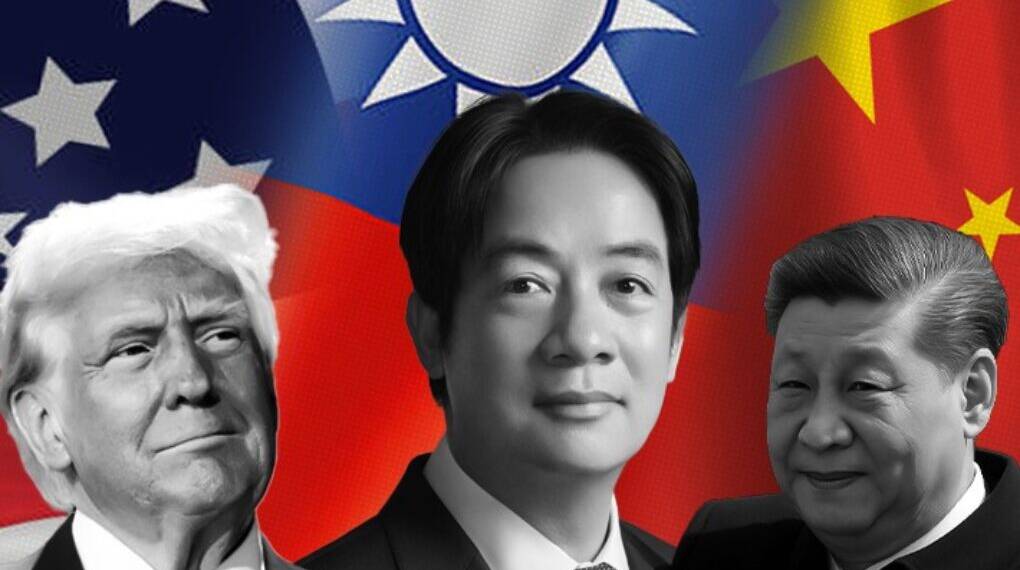Recent developments surrounding Taiwan’s Vice President William Lai Ching-te’s cancelled visit to the Americas, including a planned stopover in New York City blocked by the Trump administration, have reignited debate over Washington’s evolving stance toward Taiwan amid escalating tensions with China.
These events carry a distinct geopolitical significance beyond mere logistics—they appear closely linked to the ongoing high-stakes trade negotiations between the United States and China, with Taiwan being caught in the middle as a valued yet vulnerable bargaining asset.
Taiwan’s Diplomatic Dilemma
Taiwan remains a flashpoint in US-China relations. While Taipei increasingly prepares its civilian population for the threat of Chinese military aggression, questions loom large about whether the United States would intervene militarily if Beijing moved to invade. Against this backdrop, the cancellation of Vice President Lai’s trip to Paraguay, Guatemala, and Belize—three of Taiwan’s diplomatic allies in the Western Hemisphere raises eyebrows. Although officially attributed to internal priorities such as tariff talks with the US and disaster relief efforts after a typhoon, the underlying cause runs deeper.
The Financial Times revealed that China had expressed objections directly to Washington regarding Lai’s planned visit. Subsequently, the US government denied Lai permission to transit in New York, effectively blocking the trip. What makes this move noteworthy is that Taiwan’s office did not publicly announce the trip in advance, signaling a politically sensitive, possibly last-minute diplomatic maneuver by all parties involved.
Trump’s Calculated Messaging and Negotiating Posture
US President Donald Trump responded briskly on his Truth Social platform to reports about the aborted visit and trade discussions. He dismissed news of a promised summit with President Xi Jinping as “fake news,” emphasizing that no such meeting was being sought by him. Yet, he simultaneously left the door open by acknowledging an invitation from Xi and indicating that he “may go to China” only if formally asked.
This careful balancing act in public denying eagerness for engagement while signaling openness under specific conditions fits a broader pattern of Trump’s transactional and image-conscious approach to diplomacy. Controlling the Taiwan transit became a subtle yet tangible signal of leverage, demonstrating Washington’s willingness to curb Taiwan’s international engagements as a means to gain concessions from Beijing on trade.
Taiwan: A Pawn in Broader US-China Geopolitical Chess
By blocking Lai’s visit, the Trump administration underscores a pragmatic realpolitik tendency: using Taiwan’s international diplomatic presence and security status as a bargaining chip in the complex and critical trade talks with China. For Washington, Taiwan’s sensitivity offers a pressure point to encourage Beijing to negotiate on favorable terms, especially amid concerns over tariffs, supply chains, and technology transfer.
However, this approach leaves Taiwan navigating a precarious position caught between dependence on US security assurances and the shadow of Beijing’s diplomatic pressure. The uncertainty feeds into the broader anxiety felt in Taipei, where civilians rehearse civil defense drills and political leaders weigh the costs of diminished US support for their global diplomatic endeavors.
Broader Implications for US-Taiwan and US-China Relations
Trump’s blockage of Lai’s New York stopover sends several signals:
It reassures China that the US is mindful of its “One China” policy sensitivities during delicate trade negotiations, reducing Taiwan’s diplomatic visibility at a critical moment.
It subtly pressures Taiwan to prioritize the US-China trade calculus over its own bilateral engagements—reflected in Taipei’s official explanation of focusing on tariff talks and domestic recovery.
It keeps Beijing engaged without fully conceding on Taiwan’s international presence, maintaining a strategic ambiguity advantageous in ongoing geopolitical contests.
Also Read: “We’ll Bomb Beijing if China ATTACKS Taiwan”-Trump; Xi Jinping Responds with Defiance
Strategic Ambiguity or Tactical Pressure?
The episode of Vice President Lai’s blocked visit is more than a diplomatic hiccup; it reveals how Taiwan’s fate is intricately tied to the wider US-China strategic and economic competition. For Trump, curbing Taiwan’s diplomatic freedom appears to be a calculated move in extracting trade concessions from China, showcasing a transactional diplomacy style where geopolitical allies can be leveraged as bargaining chips.
While such tactics might serve short-term negotiation goals in Washington and Beijing, they also risk unsettling Taiwan’s leadership and civilian confidence, raising questions about the reliability of American support in an increasingly fraught regional security environment.
As US-China talks continue, Taiwan watches closely—aware that its autonomy and international voice may fluctuate with the fluctuating winds of global power politics. For the Trump administration, Taiwan remains both a valuable partner and a lever in the high-stakes game with China.








